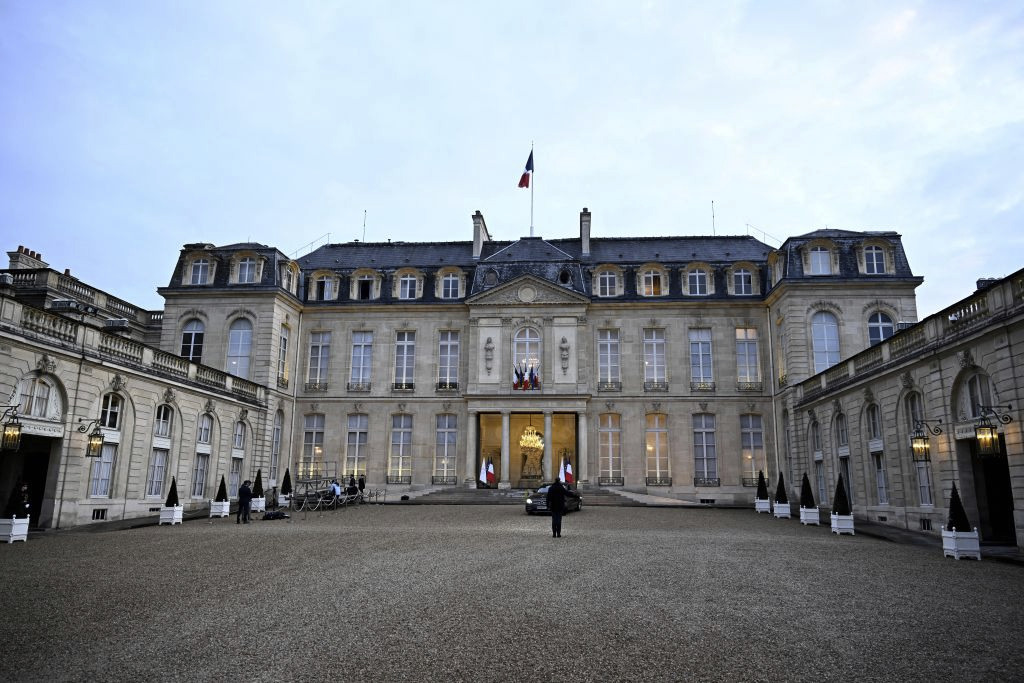
Is France going to have an extremist president in a few months' time?
If we believe the prophecy made by popular novelist Michel Houellebecq in his 2015 novel Submission, the answer must be yes.
In the novel, Houellebecq claimed that the French have only seven years, that is until 2025, to prevent Islamic extremists from seizing power in France through a general election with the help of leftist and politically correct groups.
In a self-loathing tone, he portrayed a house divided by power-hungry clans, while many Frenchmen saw their nation drifting in uncharted waters with no anchor. Disappointed in a system that seems to have become a self-perpetuating monster with increasingly powerless governments that promise more and deliver less, the average Frenchman in the novel seeks a savior, a strongman who can flush out distant bureaucrats in Paris and Brussels.
The "savior" can only come from those with "strong beliefs," men who do not deal with issues with "on the one hand-and-on the other hand" method.
An advocate of Western "decline," Houellebecq claims that Europeans no longer believe in anything and thus are doomed to lose the fight against home-grown extremists who passionately believe in the little they know of Islam.
While Houellebecq envisaged "submission," another French soothsayer, Gilles Kepel, suggested an "Andalusian" solution, a system in which Muslims and non-Muslims share power as they did in the "golden age" of Spain.
Well, the bad news is that France is still without an effective government, with the ruling elite's prestige at an all-time low.
Moreover, despite the brief feel-good parenthesis of the Olympics, the general mood in the country remains somber.
The good news is that although a bloc of ultra-left groups, waving flags of Hamas and masquerading as defenders of Islam, won the largest number of seats, but not a majority, in the National Assembly, its leaders were not intelligent enough to cash their chips and seize a chunk of power in a deal with President Emmanuel Macron.
Their obstinacy and the raising of the Hamas flag inside the parliament have provoked an anti-Islam backlash opposed to Houellebecq and Kepel's forecasts. Thus, France isn't going to have an extremist president next year.
What has happened is that ultra-nationalist groups have seized the opportunity to portray themselves as the only bulwark against an "aggressive Islam" with the catchword "immigration" that causes "insecurity."
It was only a generation ago that France, or at least the opinion-making elite, had a quite different image of Islam. At that time, Islam was seen as a deeply spiritual discipline best explained by mystics such as Ibn al-Arabi and poets such as Roumi.
Made ideologically homeless after revelations about Stalin's crimes, leftist intellectuals such as Michel Chodkiewicz, Vincent Monteil, Helene Meyerowicz, Maurice Béjart and Roger Garaudy and hundreds of lesser-known figures converted to Islam in reaction to their disappointment in Communism.
Scholars like Henry Corbin, Louis Massignon, Jacques Berque and Maxime Rodinson helped create an image of Islam as a faith that shunned materialism, promoted frugality, peace and fraternity. Corbin waxed lyrical about the importance of what he called l'imaginal in Islam as an alternative to the real, tangible existence.
The soft image that French Islamologues created was used by militant Islamists, including the Muslim Brotherhood, the Khomeinists of Iran and Lebanon, remnants of the Algerian Islamic Salvation Front (FIS) and more recently ISIS to cast themselves as "victims" of colonialism, imperialism and even racism and avoid close scrutiny, while they built no-go fiefdoms around Paris and provincial centers to promote ideologies far from Ibn al-Arabi and Roumi; let alone St. Aldebert and Meister Eckhart.
Between 1980 and 2020, the French state spent more than $30 billion in its "Islamic" suburbs in the hope of preventing what Macron describes as "separatism." The project, most enthusiastically implemented by ministers such as Bernard Tapie and Jean-Louis Borloo, produced the opposite of what was desired. It helped local qaids (chiefs) to create a larger clientele and tighten their control on the "separatist" suburbs.
Macron sometimes describes these "separatists" as "France's Amish" after a Christian sect concentrated in Pennsylvania that tries to live a separate existence on the margin of modern American way of life. However, there are huge differences between the Amish and the French "separatists." The Amish do not try to impose their way of life on others.
The "separatists" do not represent the only threat to the French culture and way of life. Their emergence has encouraged a sharp reaction in the form of "uniformalism" by increasingly vocal groups that wish to impose a one-size-fits-all way of French-ness.
The French elite's mystic re-reading of Islam was wide of the mark, and so is its new reading of it as an "existential threat" in the words of Éric Zemmour.
The first re-reading assumed that French Muslims were owed something and engendered a policy built on guilty feeling that used bribery and apology as tools of an imaginary reconciliation. The latest re-reading plays in the hands of the small minority of radical extremists who divide the world into "them and us."
Both re-readings promote the very "separatism" that Macron warns about.
Amir Taheri was the executive editor-in-chief of the daily Kayhan in Iran from 1972 to 1979. He has worked at or written for innumerable publications, published eleven books, and has been a columnist for Asharq Al-Awsat since 1987. He is the Chairman of Gatestone Europe.
This article originally appeared in Asharq Al-Awsat and is reprinted with some changes by kind permission of the author.


